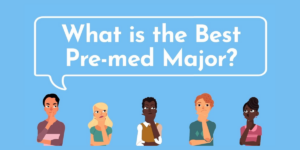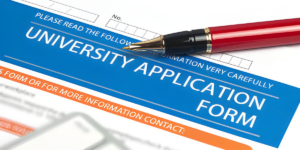The healthcare world is changing quickly, and relying only on strong medical knowledge or clinical training is no longer enough to make someone a great doctor. What truly sets exceptional physicians apart is the way they connect with patients—how they listen, explain, show empathy, and build trust. For students beginning their medical journey, especially those studying at an Affordable Caribbean medical school, developing these communication skills early makes a real difference.
Learning how to communicate well during clinical training helps future doctors build meaningful patient relationships, improve treatment outcomes, and handle the emotional and cultural challenges they’ll face in real healthcare environments.
Doctor–patient communication is the core of good medical practice. It shapes how well you understand a patient, how accurately you diagnose, how committed they stay to treatment, and how supported they feel throughout their care. In this blog, you’ll understand why communication is such a critical skill in medicine and how you can strengthen it from the start to become a confident and compassionate doctor.
Why Communication Skills Matter in Medicine
Strong doctor-patient communication is more than just exchanging information. It’s about building trust, understanding patient concerns, and helping patients make informed decisions about their health. Studies show that effective communication can significantly improve patient satisfaction, reduce medical errors, and increase treatment compliance.
Unfortunately, many practicing physicians still struggle in this area. According to various surveys, 40% of doctors are unfamiliar with structured communication models such as the RESPECT model, and many fail to practice active listening and empathy consistently. This highlights the need to emphasize communication training right from the start during medical school.
Building Communication Skills Early
Developing communication skills during medical school helps students cultivate habits that last a lifetime. When students begin learning how to communicate effectively in a clinical setting, they learn to view patients not as cases, but as individuals with unique experiences, fears, and values.
Here are key ways medical students can begin strengthening their communication skills early on:
1. Practice Active Listening
Listening attentively to patients is the cornerstone of effective communication. Medical students should be trained to allow patients to express their thoughts without interruption and to acknowledge their emotions. This builds empathy and trust, which are essential qualities for every physician.
2. Learn Empathy Through Exposure
Empathy isn’t just taught; it’s experienced. Early exposure to patient interactions allows students to understand the emotional and psychological dimensions of healthcare. From role-playing exercises to patient simulations, there are a number of strategies that can help students recognize non-verbal cues and respond compassionately.
3. Use Simple and Clear Language
Using complex medical terminology sounds confusing and intimidating to patients. Students should learn to translate complex medical terms into simple explanations that empower patients to understand their condition and treatment. Practicing this early helps eliminate communication barriers later in clinical practice.
4. Develop Cultural Competence
Today’s healthcare environments are diverse. Understanding cultural differences and respecting beliefs, values, and communication styles is crucial. Building cultural competence ensures that future physicians can connect effectively with patients from all backgrounds.
5. Engage in Reflective Practice
After every patient interaction or simulation, students should reflect on what went well and what could be improved. This practice promotes self-awareness, a vital trait for emotional intelligence and communication growth.
6. Master Non-Verbal Communication
Many factors, such as body language, facial expressions, tone of voice, and eye contact, influence how well your message is perceived. Students must learn how to convey empathy and professionalism through their posture and gestures.
7. Embrace Feedback
Constructive feedback from peers, mentors, and patients can help students identify communication gaps and continue to improve. Creating an environment that welcomes feedback nurtures confident, compassionate communicators.
How WUSOM Helps Students Build Effective Communication Skills
At Windsor University School of Medicine (WUSOM), communication training is woven into the fabric of medical education. As one of the best medical school in Caribbean, WUSOM understands that strong doctor–patient communication is just as important as clinical skill. That’s why the university takes an early, hands-on approach to help students build confidence, empathy, and clarity in every patient interaction—shaping them into physicians who treat people, not just conditions.
Here’s how WUSOM supports students in mastering doctor-patient communication:
1. Early Clinical Exposure
WUSOM emphasizes early clinical training, introducing students to patient interactions from the early stages of their education. Through simulations, standardized patient encounters, and clinical rotations, students practice building rapport, explaining diagnoses, and handling sensitive conversations with professionalism and empathy.
2. Problem-Based Learning (PBL)
WUSOM’s Problem-Based Learning curriculum encourages collaboration and open dialogue. Students work together to discuss cases, present findings, and explain medical reasoning clearly, skills that translate directly to real-world patient communication.
3. Interpersonal Skills Workshops
Windsor University organizes communication and professionalism workshops focusing on empathy, cultural sensitivity, and ethical dialogue. Students engage in role-playing exercises that mimic real clinical interactions, helping them build confidence and empathy.
4. Guidance from Expert Faculty
WUSOM’s dedicated faculty not only teach medicine but also mentor students in soft skills like active listening, compassion, and teamwork. With an 8:1 student-to-faculty ratio, every student receives personalized feedback to refine their communication approach.
5. Holistic Education Environment
At WUSOM, students are trained to treat patients holistically, not just their symptoms. This patient-centered philosophy emphasizes empathy, respect, and trust, which are the pillars of strong doctor-patient relationships.
WUSOM, Cultivating Future Physicians with Compassion
At Windsor University School of Medicine, the goal isn’t just to produce doctors; it’s to produce healers who understand the power of human connection. Through continuous communication training, clinical exposure, and a culturally , WUSOM ensures its students graduate ready to make a difference in patients’ lives.
When medical students learn to communicate early and effectively, they become doctors who not only diagnose but also connect, doctors who heal with words as well as medicine. Join WUSOM, where future doctors learn the science of medicine and the art of compassionate communication. !
At Windsor University School of Medicine, the goal isn’t just to produce doctors; it’s to shape healers who understand the impact of genuine human connection. Through ongoing communication training, hands-on clinical exposure, and a culturally diverse learning environment, WUSOM ensures its students graduate ready to make a meaningful difference in every patient’s life.
When medical students learn the value of clear and compassionate communication early, they grow into doctors who don’t just diagnose — they connect. They become professionals who heal with their words as much as with their medical knowledge.
If you’re looking for a St Kitts University that blends strong medical education with the art of patient-centered communication, WUSOM stands out. Join a place where future doctors master both the science of medicine and the skills that build trust.







